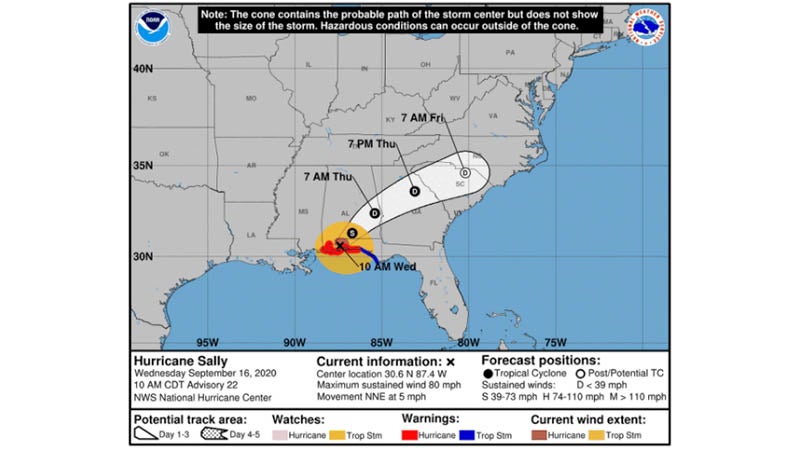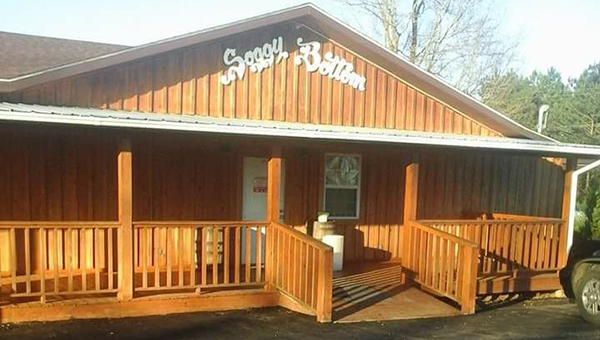WITNESSES TO HISTORY
Published 12:07 am Saturday, March 7, 2015
Crayton helped King, Abernathy
“I have a dream that my four children will one day live in a nation where they will not be judged by the color of their skin, but by the content of their character.”
Nearly everyone can attribute that quote to Dr. Martin Luther King Jr., but not everyone knew the man behind the powerful speech.
Count Opp resident and Covington County native Corine Crayton among those who did. Now 90, shared her memories of the Civil Rights Movement earlier this week.
COLLEGE FRIENDS
Crayton attended Selma University for two years before transferring to Alabama State University. During her time at Selma University, she became friends with a young lady named Juanita Jones.
Jones moved to Nashville, Tenn., after Selma University. Crayton went to Georgia to take nursing classes before eventually coming back to ASU.
By then Juanita had met and married Linden native Ralph Abernathy, a minister, and civil rights activist.
“We would get together often,” Crayton said.
The Abernathys wanted Crayton to help tutor their children.
“Those who knew Ralph, knew you couldn’t really tell him, ‘no,’ ” Crayton said. “So, I said I would when I wasn’t taking classes, and we all became close friends.”
One day Ralph Abernathy asked Crayton to help watch his children so he could go preach a revival up north.
Crayton was scheduled to go home to see her children, but a persuasive Ralph talked her into it.
“He came over to where I was boarding,” she said. “He kept talking until he talked me into it.”
SETTING THE STAGE
Crayton said while she watched the children, three youngsters from Tennessee came into town on a bus – a white boy, a white girl and a black boy.
She said the boys were severely beaten when they got off the bus, and word got around that they were being taken to St. Margaret’s Hospital in Montgomery.
A friend of Crayton’s who had been jailed, called her and requested her assistance.
“We rode to St. Margaret’s,” she said. “I was told the boys were not there, and was able to find out that they had been taken to St. Jude.”
A drive to St. Jude found that the boys would be OK, but would require overnight stays at the hospital.
Crayton said she knew that the Abernathys’ phone had been tapped, but she discreetly let Ralph Abernathy know it was important for him to come back to Montgomery, as soon as possible.
“I called Ralph to tell him I thought he should come home,” she said. “He asked me to call Martin and ask him to come from Atlanta.”
It was at the Abernathys’ and at random churches that Ralph Abernathy and King organized protests from sit-ins to the trio of marches from Selma to Montgomery.
“The kids would line up to do whatever was needed,” she said. “Some would sit at counters. Others would go to whites-only bathrooms or drink from whites-only water fountains. They were doing things they knew black people couldn’t do. They were put in jail.”
Crayton said the group would get toiletries together for those who were in jail.
“They would sing in jail, but they were stopped,” she said. “They would pray in jail, and they were stopped from that.”
During that time, Crayton said she and others prepared three meals per day for those helping organize the events.
“Ralph would go out and buy crates of bacon and eggs,” she said. “We would cook them.”
There were often so many people who spent the night at the Abernathys’ that there wasn’t room for everyone to sleep in beds.
Crayton said while Ralph Abernathy and Dr. King would go to organization meetings at night that random people would call to see if she knew where Dr. King was.
King put Crayton in charge of answering the telephone and the door.
“I always called him Dr. King and he always called me Miss Crayton,” she said. “One day, he said, ‘Why are you so professional? You always say, ‘Dr. King this and Dr. King that. I’m Martin.’ So, I told him, ‘I’m Corine.’ ”
REMEMBERING THE MARCHES
Crayton said she traveled to Baltimore, Md., to visit cousins and when she came back on the plane, people were coming for a march.
“When we got to the airport, there was an outside telephone, and there were people monitoring it,” she said. “The monitors would ask people if they wanted to go to Selma for the march, and someone would drive those who wanted to go to Selma.”
Crayton said when she walked by the telephone, the girl who was manning the telephone explained what she was doing.
“I asked her how long a shift was,” she said. “I told her I would take charge, when her time was up. So, I stood there for a while.”
Crayton said eventually a guy came by and she explained to him what she was doing.
“He said, ‘Are you going to Selma?,’” she said. “I told him I could go to Selma, but not to be in the march.”
The pair rode to Selma together.
“After we got into Selma, we could see soldiers up and down the highway, in trees and in the turnoffs,” she said. “The closer we got to Selma, the more soldiers we saw.”
Crayton said they saw demonstrators “in a program.”
“Dr. King was telling them how to line-up,” she said. “After they got that organized, they started up to the Edmund Pettus Bridge.”
Crayton said they had to go a different route to Montgomery because the road was closed.
Crayton said her brother participated in the march for a while, and that marchers walked “ a good ways from Selma.”
“There was a black lady who had a home between Selma and Montgomery,” she said. “They asked her if they could camp out on her property for the night. My neighbor and I had gotten word about what time they would be back to Montgomery.
“So we went to the store and got everything we could to make sandwiches,” Crayton said. “We made a lot of them, and we took them to the marchers.”
Crayton said they marched into St. Jude.
“We gave the sandwiches to the marchers,” she said. “There were people at the gate searching everyone.”
50 YEARS FOLLOWING
Crayton said she was fortunate to grow up loving everyone.
“My mom taught us to treat everyone the Christian way,” she said. “My mom worked for Dr. Ethelbert Norton, and his wife would not let Momma leave without taking food for us every night.”
Crayton said the Nortons would invite her family over when they had visitors to say their speeches.
“They loved my mom,” she said. “And we loved them. We came up loving people. I thank God I never had hatred in my heart. “
Crayton said she taught school at Kinston, where the students had questions about her hair and about black babies.
“I had one student who told me that she was told that black babies are born with hair on them,” she said. “I told her, ‘Honey, whoever told you that, tell them that your teacher helped doctors deliver black babies and white babies and that I’ve never seen them with hair like that.’”
During that time Crayton recalled that the Ku Klux Klan was very active in the Kinston area.
In fact, they would hold Klan meetings in the Kinston stadium and the school, if weather the was bad.
“They treated me nice at Kinston,” she said.
Crayton said she believes that society is much better than it was 50 years ago, but that there still could be some changes.






